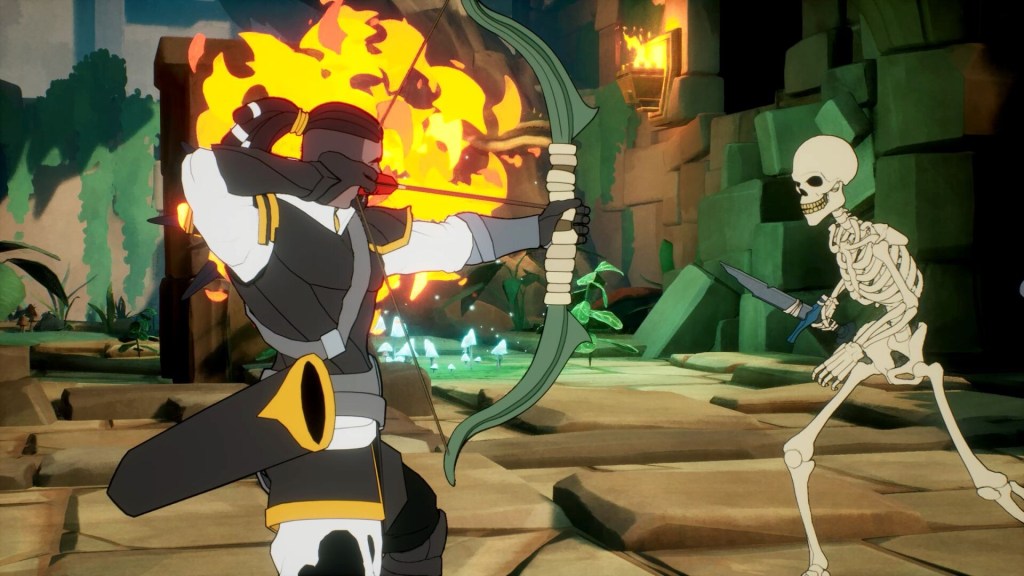As you might have seen in today’s IGN x ID@Xbox Digital Showcase, we debuted a brand-new villain (Hexstar) and announced the inevitable release date of our upcoming title for September 12, 2023, for Xbox One and Xbox Series X|S. Inspired by beloved Saturday morning cartoons, MythForce unites swords and sorcery with gripping first-person combat in a new roguelike adventure.
What inspirations from your work in Baldur’s Gate and Neverwinter Nights have you applied into MythForce?
We were heavily inspired by our previous work. Some of the major inspiration came from the differing roles of the character classes in our legacy D&D games. A Rogue character plays very differently from a Mage and from a Fighter. In MythForce, this is especially true, with the Rico character acting very much like a rogue, hitting high-impact targets and getting out. Maggie plays the mage archetype, high damage, but not a lot of defense. Victoria anchors the party as a stout fighter, soaking up damage with a shield and controlling the tempo of the fight, and Hawkins is closest to a Ranger, a combination of ranged precision damage, stealth, and some magical ability.
We drew inspiration from roguelikes across the whole genre, from classics like Nethack, to understand the roots of the genre and see how much of the “rogue” in roguelike we wanted to adopt, to more recent games like Hades and Darkest Dungeon, with how they managed to successfully incorporate narrative and a linear story into a genre that’s famously story-light. We felt that that integration of narrative was important to our roots, so it was an important touchpoint for us.
The shaders in MythForce seem like they were created by a Saturday Morning cartoon fanatic. Can you tell us more about the art style in MythForce?
The art style of MythForce is a High Octane ’80s Cartoon Homage that aims to feel as authentic as possible while still being an enjoyable 3D first-person experience. Both Luke, MythForce’s project director, and Eric, our art director, are huge fans of the classic cartoons of the era.


For more on MythForce, visit www.MythForce.com, and follow along with the latest updates on Discord, Twitter, and Facebook.
P.S: The MythForce team wanted to give a BIG SHOUTOUT to all the radical Adventurers that made MythForce one of the Top 50 Most Played Demos during Steam Next Fest. As a special thank you, we’re bringing the MythForce Demo back for Round 2, on Steam.
Get in some runs with friends, and collect as many Star Shards as you can – you’re gonna need them to take on Deadalus.
Sources: Xbox News, MythForce Steam Page








